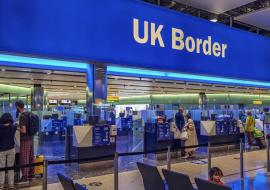Black Friday: Unraveling Origins and Unprecedented Impact

By Jorge Coromina
As the holiday season edges closer, the frenzy of Black Friday emerges, marking the commencement of the holiday shopping spree. This day, notorious for its chaos and colossal discounts, has evolved into a cultural phenomenon, deeply ingrained in the fabric of consumerism across the globe. But how did this retail extravaganza come to be, and what impact does it truly wield?
The roots of Black Friday trace back to Philadelphia in the 1950s. Initially, the term was associated with the disruptive pedestrian and vehicular traffic caused by shoppers flocking to stores the day after Thanksgiving. Police officers used "Black Friday" to describe the pandemonium that ensued. Over time, retailers adopted the term, reshaping its narrative to signify profits moving from "in the red" to "in the black," signifying profitability.
While its etymology lies in local vernacular, Black Friday's transformation into a national event emerged in the late 20th century. Retailers saw an opportunity to kickstart the holiday shopping season, offering steep discounts to entice consumers and boost end-of-year sales.
Black Friday's impact extends far beyond discounted prices and throngs of shoppers. It represents a seismic shift in consumer behavior and the retail landscape. The intense marketing campaigns and doorbuster deals have created a sense of urgency, prompting consumers to camp outside stores or scramble online to snag limited-time offers.
Moreover, Black Friday has increasingly encroached upon Thanksgiving Day itself, with stores opening earlier each year. This encroachment has sparked debates about consumerism's encroachment on the holiday's sanctity and the toll it takes on retail workers forced to forego family time to cater to eager shoppers.
For businesses, Black Friday is a make-or-break moment. It often serves as a litmus test for their annual performance, with many retailers relying on the holiday season for a substantial portion of their yearly revenue. The success or failure on Black Friday can determine a retailer's trajectory for the following year, influencing stock prices and investor confidence.

In recent years, the dynamics of Black Friday have shifted with the rise of e-commerce. Online retailers have capitalized on Cyber Monday, the digital counterpart to Black Friday, offering enticing deals and leveraging the convenience of online shopping to attract a different segment of consumers.
The consumerist fervor surrounding Black Friday has drawn criticism. Concerns about overconsumption, environmental impact due to increased waste from discarded products, and the ethical implications of aggressively driving consumerism have led to calls for a reevaluation of this shopping spree.
Efforts like "Buy Nothing Day" and campaigns urging consumers to be mindful of their purchases have gained traction, advocating for a more conscious approach to shopping and encouraging sustainable consumer behavior.
Black Friday remains a double-edged sword, symbolizing both the pinnacle of consumerism and the economic heartbeat for many businesses. Its evolution from a local term to a global shopping event underscores the power of marketing, consumer behavior, and the intertwined relationship between retailers and consumers.
However, as societal consciousness shifts towards sustainability and ethical consumerism, the future of Black Friday might witness transformations. Whether it will sustain its current form or undergo a metamorphosis into a more conscientious shopping event remains to be seen. Nonetheless, its impact on the retail landscape and consumer psyche continues to be a defining aspect of modern-day consumer culture.














